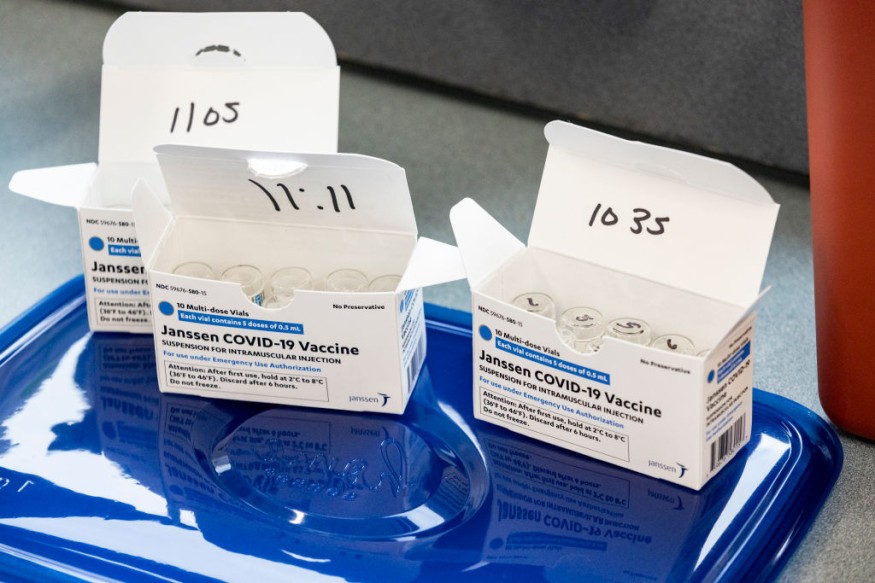Blood Clots, Potential Rare Side Effect in Johnson & Johnson Vaccine

A European Union regulator has suggested that the Johnson & Johnson vaccine should list blood clots as a "rare" side effect of the vaccine, including a warning about unusual blood clots with low platelets.
However, the European Medicines Agency safety committee said that the benefits still outweigh the risks.
"The reported combination of blood clots and low blood platelets is very rare, and the overall benefits of COVID-19 Vaccine Janssen in preventing COVID-19 outweigh the risks of side effects," the agency was quoted in a Fox News report.
Meanwhile, the United States is expected to release its decision on the single-shot vaccine on Friday. Europe's vaccination campaign involving the J&J vaccine was delayed after the U.S. regulator paused the rollout.
EMA's safety committee said that it found a possible link of blood clots to the vaccine.
This was after reviewing isolated cases of clotting among people who received the vaccine, according to an AFP News report.
EMA chief Emer Cooke said that blood clot is a very rare effect.
"But it also makes it very important for doctors and patients to be aware of the signs so that they can spot any concerns," Cooke was quoted in a report.
Blood Clot Cases
The cases of blood clots have been reported among women between the ages of 18 and 48, with their symptoms emerging six to 13 days after vaccination.
The acting commissioner of the Food and Drug Administration, Janet Woodcock, earlier said that there is not enough information on whether any particular group is more vulnerable, according to an NPR report.
The FDA says that the clots are rare and severe type. This happens in the blood supply that drains the brain.
Medical experts call it cerebral venous sinus thrombosis or CVST. Its symptoms include headache, blurred vision, fainting or loss of consciousness, loss of control over movement in part of the body, and seizures.
The CDC said on Tuesday six women were reported to experience severe blood clots. One was fatal and another patient is in critical condition.
The World Health Organization advises that if one experiences a severe side effect four to 20 days after vaccination, the patient should go to the doctor, according to an Insider report.
Johnson & Johnson Vaccine
The FDA's analysis found that J&J was 72 percent effective at preventing all COVID-19 cases in the U.S., while 86 percent effective at preventing severe cases of the disease.
Meanwhile, researchers found that the J&J vaccine is slightly less effective at preventing the illness in South Africa, but was still 82 percent effective at preventing severe disease.
It offers protection against other variants such as the British variant and the COVID variant found in Brazil.
J&J can be stored at much warmer temperatures as compared to other approved vaccines such as Pfizer and Moderna, which are both mRNA vaccines.
These kinds of vaccines should be shipped and stored at below-freezing or subzero temperatures, while the J&J vaccine can be stored for at least three months in a regular refrigerator.
WATCH: Johnson & Johnson vaccine review follows blood clot cases | Coronavirus Vaccine |Latest English News - from WION
Subscribe to Latin Post!
Sign up for our free newsletter for the Latest coverage!

















